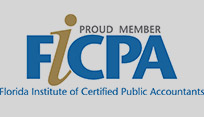The terms “accountant,” “bookkeeper,” and “CPA” are often used to define the same thing. But they’re not actually the same. These three professionals are very different in terms of what they do, the tasks they perform, and their licensing and professional status. Here’s a further breakdown.
What do bookkeepers do?
A bookkeeper is someone who works for a company to keep the financial books. Most bookkeepers these days use accounting software, such as Quickbooks. A bookkeeper’s responsibilities include recording transactions, accounts receivable, accounts payable, and inventory.
What do accountants do?
Accountants are a step up from bookkeepers. They can perform bookkeeping duties, but they usually don’t. Instead, they prepare detailed financial statements, perform financial audits of public companies, and prepare reports for tax purposes.
What do CPAs do?
A CPA has an extra level of expertise and credibility. A CPA is an accountant who has passed certain examinations and has met all other licensing requirements to be certified by the state. They prepare tax returns for businesses and individuals, sign tax forms, and represent taxpayers before the IRS for audits and other matters.
Which accounting professional do you need?
Every business, even a small one, needs a bookkeeper. You also need someone to help you review your financial reports and help you make decisions on finances and taxes. It’s not absolutely necessary to get a CPA, but an accountant who isn’t a licensed practicing CPA can’t represent you before the IRS. That’s something to keep in mind.






